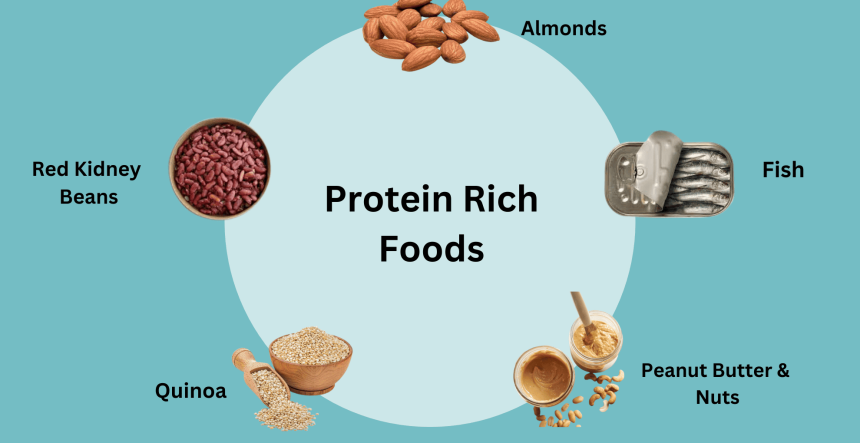When it comes to achieving effective and sustainable weight loss, one nutrient stands out above all others — protein. Unlike quick-fix diets that promise rapid results but often lead to fatigue and muscle loss, protein-rich diets offer a balanced, scientifically supported path to fat burning, muscle retention, and overall health.
Whether your goal is to lose excess body fat, tone your physique, or simply feel more energetic, understanding how protein affects your metabolism can make a world of difference.
What Makes Protein So Important for Weight Loss?
Protein is one of the three major macronutrients — along with carbohydrates and fats — but it plays a unique role in the body. It’s made up of amino acids, the building blocks that help repair tissues, build muscle, and regulate key metabolic processes.
When you consume protein, your body uses more energy to digest it compared to carbs or fats. This process is known as the thermic effect of food (TEF). Research shows that protein has a TEF of about 20–30%, meaning that up to one-third of the calories you eat from protein are burned during digestion alone (Harvard Health, 2023).
This metabolic boost is one of the reasons why high-protein diets are so effective for fat loss.
Protein and Fat Burning: The Science Behind It
When your diet includes adequate protein, several physiological mechanisms work together to promote fat burning:
- Boosted Metabolism:
The body expends more calories to digest protein, raising your overall metabolic rate. - Reduced Appetite:
Protein helps regulate hunger hormones like ghrelin and GLP-1, helping you feel full longer and naturally reduce calorie intake. - Stable Blood Sugar Levels:
Unlike simple carbohydrates that cause insulin spikes, protein helps maintain stable energy levels and prevents sudden hunger pangs. - Preservation of Lean Muscle:
During calorie restriction, the body often burns muscle along with fat. Adequate protein ensures that your body targets fat stores first while preserving lean muscle tissue — essential for long-term weight management.
According to a meta-analysis published in the American Journal of Clinical Nutrition, individuals who followed a high-protein diet (1.2–1.6 g/kg body weight) lost significantly more fat while retaining more muscle compared to those on standard protein diets.
Protein and Muscle Preservation During Weight Loss
One of the most overlooked challenges during weight loss is muscle loss. When you cut calories, your body may break down muscle tissue for energy. This not only slows metabolism but can also reduce strength and tone.
A protein-rich diet, combined with resistance training, helps protect and rebuild muscle fibers.
Studies published in The Journal of Nutrition confirm that maintaining muscle mass through high-protein intake supports higher resting energy expenditure — meaning you burn more calories even at rest.
Best Sources of Protein for Weight Loss
To maximize the benefits of a protein-rich diet, focus on high-quality, nutrient-dense protein sources that are easy to digest and low in unhealthy fats.
🥩 Animal-Based Proteins
- Skinless chicken or turkey breast
- Fish and seafood (especially salmon, tuna, cod, shrimp)
- Eggs and egg whites
- Lean red meat in moderation
- Low-fat dairy: Greek yogurt, cottage cheese
🌱 Plant-Based Proteins
- Lentils, beans, and chickpeas
- Quinoa
- Tofu and tempeh
- Nuts and seeds (almonds, chia, hemp, pumpkin seeds)
- Pea or soy protein powders
Combining plant-based proteins can also provide a complete amino acid profile, similar to animal proteins.
How Much Protein Do You Really Need?
While exact needs vary, most research suggests that 1.2 to 2.0 grams of protein per kilogram of body weight per day supports fat loss and muscle preservation.
For example, someone weighing 70 kg (154 lbs) may benefit from consuming 85–130 grams of protein daily, depending on activity level and health goals.
Those who engage in strength training or endurance exercise may need even higher amounts for optimal muscle recovery.
It’s also important to spread protein intake evenly throughout the day — at breakfast, lunch, dinner, and post-workout — to maximize muscle protein synthesis.
Can Too Much Protein Be Harmful?
In healthy individuals, a moderately high protein intake is generally safe. However, individuals with kidney disease or metabolic conditions should consult a healthcare provider before increasing protein consumption.
Balance is key — your diet should also include vegetables, whole grains, and healthy fats to provide a complete nutrient spectrum.
Building a Sustainable, Protein-Focused Lifestyle
The power of a protein-rich diet goes beyond short-term fat loss. It helps stabilize mood, improve energy, enhance skin and hair health, and support hormonal balance.
If you’re planning to start a weight loss program, consult a qualified nutritionist or medical professional to personalize your approach.
Platforms like Tabeebo.com connect patients with experienced doctors, dietitians, and weight management specialists who can help design a safe and effective nutrition plan based on your unique needs.
Conclusion
A protein-rich diet is more than just a fitness trend — it’s a scientifically backed approach to achieving lasting health. By prioritizing high-quality proteins and balanced nutrition, you can burn fat efficiently, preserve muscle strength, and feel stronger from within.
The secret isn’t deprivation — it’s smart, mindful nourishment that supports both your body and mind.







